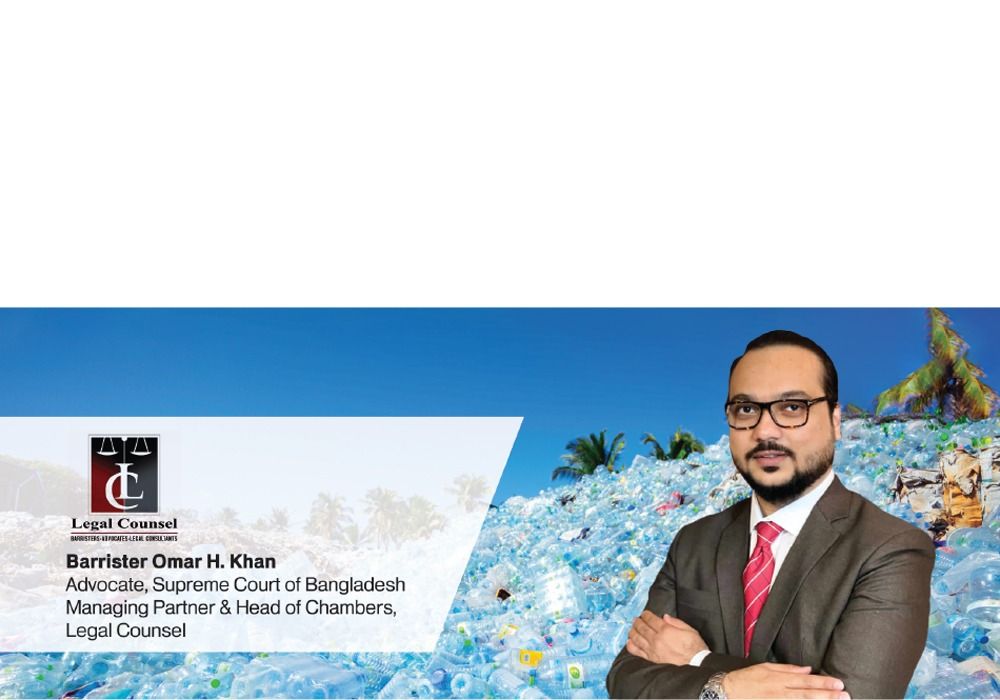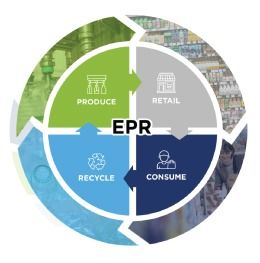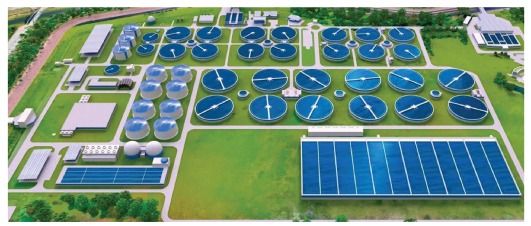- info@ficci.org.bd
- |
- +880248814801, +880248814802
- Contact Us
- |
- Become a Member
- |
- |
- |
- |
- |

Worldwide, plastic leakage into the environment is estimated to escalate by 50 percent by 2040 with cumulative cost reaching US$281 trillion between 2016 and 2040. Bangladesh's environmental challenges are aggravated by industrial growth particularly in terms of plastic waste and water pollution. Bangladesh annually generates approximately 821,000 tons of plastic waste and faces and significant water contamination is caused from industrial activities. The shift from a linear to a circular economy which designs out waste, reuse materials, and regenerates natural systems is now essential. In order to combat the global environmental crisis, Bangladesh like many other countries, must adopt sustainable solutions to minimize the negative impact on the planet. This transition not only mitigates degradation but also unlocks new opportunities.
 Legal Framework
Legal Framework
In Bangladesh, the primary legal framework for water management is the Water Act 2013, Water Rules 2018 and the National Water Policy 1999. Environmental pollution control, including plastic and water is governed by the Bangladesh Environment Conservation Act, 1995 (BECA) and Environment Conservation Rules, 2023 (ECR). Bangladesh lacks specific laws like the Freedom from Plastic Pollution Act or Extended Producer Responsibility Act but has adopted the Solid Waste Management Rules (SWMR), 2021 along with a National 3R Strategy for Waste Management, focusing on 'Reduce, Reuse, and Recycle' and the Jute Packaging Act, 2010 which provides alternatives to plastics.
In 2021, the Ministry of Environment, Forest, and Climate Change (MOEFCC) of Bangladesh with World Bank endorsed the action plan 'Towards a Multisectoral Action Plan for Sustainable Plastic in Bangladesh' to build a circular economy for plastics. Furthermore, the MoEFCC is collaborating with the Ministry of Water Resources to develop the Extended Producer Responsibility (EPR) guidelines to address plastic pollution and foster sustainable development.
Circular solutions: Implement EPR guidelines
EPR is the responsibility of the manufacturers and importers of products to properly manage the waste created from their products after consumer use. This can be done by the producer alone or in cooperation with local authorities. It includes taking environmentally sound measures, encouraging consumers to return used products by offering incentives, and ensuring proper collection, reuse, recycling, and disposal of the waste. Under the SWMR Rules 2021, manufacturers/Importers of non-biodegradable disposable products such as plastic, polythene, wrapping, bottles and cans must collect and dispose of waste from consumers responsibly.
 To make EPR effective, Bangladesh must introduce specific EPR guidelines and can adopt proven elements from other countries like clear targets, a digital registration system, and allowing third-party Producer Responsibility Organizations (PROs) to manage compliance. However, as opposed to waiting for specific regulatory regime, the reputed companies should act on their won accord and behave responsibly in their business conducts. Such behavior should not only be limited to ticking theoretical tick-boxes, as sadly many do, but also be practically implemented, which encouragingly many have started. We were increasingly been asked by different MNCs to prepare internal polices for them and we are aware that many of them have been implementing EPR.
To make EPR effective, Bangladesh must introduce specific EPR guidelines and can adopt proven elements from other countries like clear targets, a digital registration system, and allowing third-party Producer Responsibility Organizations (PROs) to manage compliance. However, as opposed to waiting for specific regulatory regime, the reputed companies should act on their won accord and behave responsibly in their business conducts. Such behavior should not only be limited to ticking theoretical tick-boxes, as sadly many do, but also be practically implemented, which encouragingly many have started. We were increasingly been asked by different MNCs to prepare internal polices for them and we are aware that many of them have been implementing EPR.
 Ban on single use plastics
Ban on single use plastics
In 2020, in a landmark decision, the Supreme Court of Bangla- desh, High Court Division banned all use of single-use plastic through the Order dated 20.01.2020, vide Writ Petition No. 14941 of 2019. Government offices have already stared to implement the same and Govt. is taking measures to gradually stop the use of single use plastics. Bangladesh should develop a digital EPR reporting system and penalize non-compliance based on the 'Polluter Pays' principle, applying India's Model.
Use biodegradable alternatives to plastic
Recycled cardboard, paper and plant-based plastics serve as exemplary biodegradable alternatives to plastic packaging. Companies like Unilever, reportedly have pledged to incorporate 25% recycled plastic in packaging and aim to collect more plastic than it sells by 2025.
Water pollution is closely interlinked with plastic waste. Macroplastics and microplastics harm marine-life, pollute fresh water sources and risk public health. Other pollutants include industrial discharge, urban sewage and groundwater over-extraction.
Circular solutions for Water Managemen

The treatment of wastewater and resource recovery
The global trend is to transform wastewater treatment plants into recovery facilities that extract nutrients such as phosphorus, generate biogas, and reclaim water. In Bangladesh, the 2030 Water Resources Group is collaborating with the government to develop PPP-based municipal wastewater projects in Gazipur and Cumilla, aiming to treat over 25 million cubic meters and reduce water pollution.
 Nature based solution
Nature based solution
Constructed wetlands are an innovative approach to wastewater treatment that supports biodiversity and creates recreational spaces. Rainwater harvesting complements this by collecting and storing rainwater from rooftops and open areas for irrigation, domestic use, or groundwater recharge, reducing pressure on freshwater sources and easing water scarcity.
 Water-Efficient Technologies & Practices
Water-Efficient Technologies & Practices
Smart systems enhance wastewater treatment through advanced technologies like sensors, data analytics, and Al. These enable instant monitoring of water quality, with sensors detecting pH, oxygen, and other parameters for immediate adjustments to maintain optimal conditions.
Conclusion
Circular strategies offer a viable solution to this unsustainable loop. Bangladesh by harnessing innovative technologies, community engagement, international cooperation and public-private collaborations, can mitigate environmental challenges while promoting economic resilience. Ongoing private investment and policy support will be pivotal in scaling these initiatives toward a sustainable future. Foreign investors can play important role in these aspects by not only injecting equity but also by bringing in technologies and innovations.





